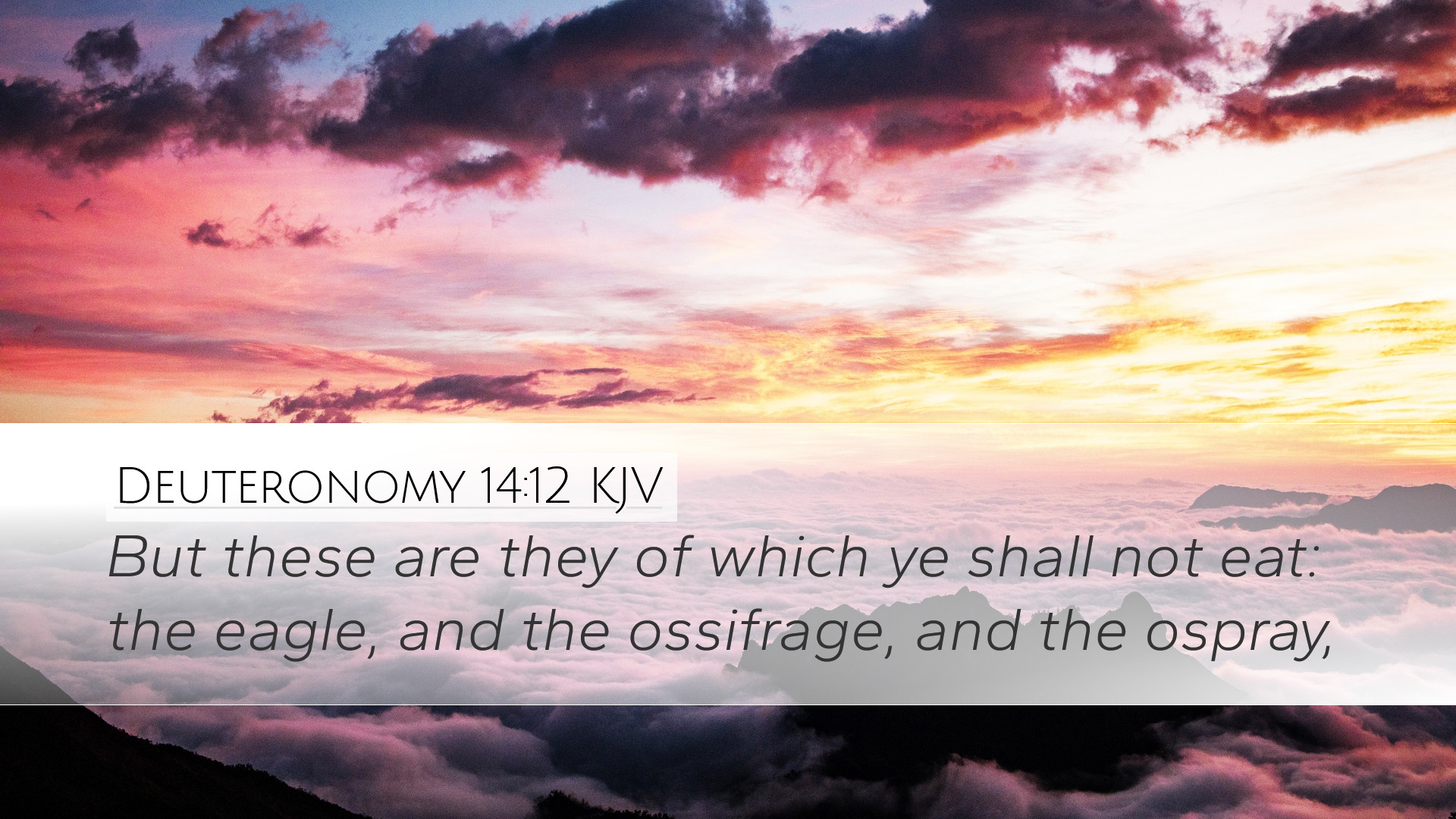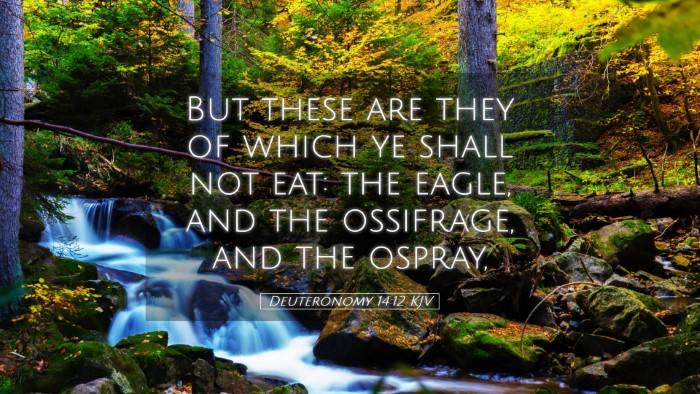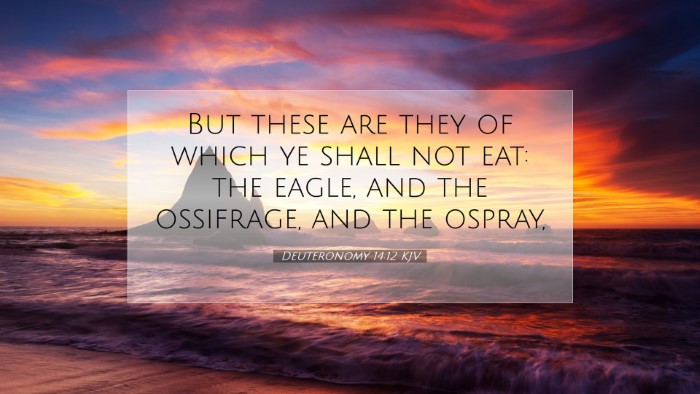Commentary on Deuteronomy 14:12
Verse Text: "But these are they of which ye shall not eat: the eagle, and the ossifrage, and the ospray."
Introduction
Deuteronomy 14:12 falls within the broader context of the Mosaic law, which was given to guide the children of Israel in their covenant relationship with God. This specific verse is part of a series of dietary laws that outline what the Israelites could and could not eat. By focusing on certain birds classified as unclean, the verse emphasizes the importance of purity and separation for God’s chosen people.
General Principles of Clean and Unclean
As noted in Matthew Henry's Commentary, the classification of animals and birds into clean and unclean serves as a symbolic representation of spiritual purity. Clean animals were those fit for sacrifice and for food, while unclean animals pointed to a deeper spiritual principle, indicating that not everything that appears desirable is acceptable before God. God's guidance in these matters seeks to instill obedience and discernment in the hearts of His people.
- Divine Authority: God's command reflects His authority over creation and His role in setting boundaries for His people.
- Covenantal Relationship: The dietary restrictions serve as a reminder of the covenant and the significance of holiness in their community.
Specific Birds Mentioned
In this verse, three specific birds are prohibited: the eagle, the ossifrage, and the ospray. Albert Barnes offers insights into these birds, noting that they were regarded as predators and scavengers. This classification aligns with the broader biblical theme of avoiding things that can spiritually defile.
- The Eagle: Often associated with strength and power, the eagle's predatory nature puts it in the category of unclean.
- The Ossifrage (or Osprey): Known for its diet of fish, the ossifrage is symbolic of consuming creatures that are not wholly clean in God’s eyes.
- The Ospray: Similar to the ossifrage, the ospray is a bird of prey who feeds on fish, reinforcing the theme of dietary restrictions while highlighting the dangers of unclean feeding.
Theological Implications
The inclusion of these birds in the list of unclean animals carries significant theological implications. As Adam Clarke explains, the distinctions between clean and unclean animals reflect the greater spiritual and moral distinctions between the people of God and the world. These prohibitions exist not merely for the sake of health but as a directive from God, aimed at fostering a community set apart for His purposes.
This separation serves to remind the people that their identity is rooted in their relationship with God, and it calls them to live in a manner that honors that identity. By adhering to these dietary restrictions, the Israelites reinforced their commitment to the covenant that distinguished them from surrounding nations.
Moral and Ethical Lessons
Furthermore, the moral and ethical lessons derived from Deuteronomy 14:12 center on the importance of obedience and the pursuit of holiness. Matthew Henry asserts that distinguishing between what is clean and unclean teaches believers to seek discernment in their choices—both in diet and in life. This principle can be expounded to encompass broader applications, as believers are called to refrain from spiritual and moral 'uncleanness.'
- Obedience: The Israelites were called to obey God's commands, and for Christians today, the call to holiness and obedience remains a central theme.
- Discernment: The verse encourages believers to exercise discernment in their lives, ensuring that they engage with what aligns with their faith.
Conclusion
In summary, Deuteronomy 14:12 serves as more than just a dietary law; it is deeply embedded in the fabric of Israel’s identity as God’s chosen people. The prohibitions of the eagle, ossifrage, and ospray illustrate a principle of spiritual separation and the imperative to pursue holiness in all aspects of life. For pastors, students, theologians, and scholars, this verse invites further reflection on how such Old Testament laws inform our understanding of God’s character, our need for obedience, and our call to live set apart for His glory.


